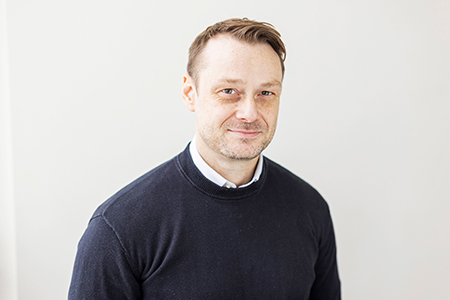Graeme Hathaway, Innovation and Learning Manager at Queen Mary Academy and facilitator of the AI in Learning Community of Practice, shares some of the work being done at University and Faculty level in funded projects.
It’s an exciting time at the University from a Queen Mary Academy (QMA) perspective with lots of our work supporting colleagues to explore Artificial Intelligence (AI) in learning across the Faculties of FMD (Faculty of Medicine and Dentistry), HSS (Humanities and Social Sciences) and S&E (Science and Engineering). Some initiatives are centrally funded, whilst practitioners are also simply trying new things out, using guidance collaboratively created between Faculties and QMA and application of the 2023 Russell Group principles on use of AI in education.
QMA Fellowships
QMA Fellowships provide space for educators to undertake educational scholarship and two educators embarked on AI related research through this initiative in 2023-2024:
AI use in student-paced learning
Heather Ford (HSS) is testing the incorporation of AI into student-paced learning in the School of Geography to support coding within the Climate Change in Practice module.
“This proposal addresses three of the five points raised by the Russell Group principles, namely developing student and staff AI literacy, supporting student use of AI in learning and sharing best practice”.
Elements of this research will be presented at the 2024 Queen Mary Festival of Education.
Heather Ford. Queen Mary Academy Fellow (Learning Enhancement). Reader in Environmental Science. School of Geography.
AI literacy development
Xue Zhou (HSS) is exploring the development of AI skills with learners primarily in the School of Business.
“In November 2023, I teamed up with AI experts from both inside and outside Queen Mary to craft and deliver six AI literacy workshops covering a range of topics including an Introduction to AI, AI in research, and the ethical usage of AI. We attracted over 640 students and staff, with 66 students earning an AI literacy badge for attending five out of the six workshops. My aim isn't to provide an all-encompassing knowledge of AI, recognising the challenges posed. My goal is to highlight AI's potential to support and enhance our students’ learning journeys. Feedback has been overwhelmingly positive. One student called the training "eye-opening," saying it revealed how intertwined AI is with our daily lives and its potential for our futures. Another shared how the training unveiled the creative side of AI, as a tool for crafting solutions that can change the world. I'm looking forward to offering more AI training to equip our students to be competitive in the AI-driven market”.
Xue Zhou. Queen Mary Academy Fellow (AI Literacy). Reader in Entrepreneurship and Innovation. School of Business and Management.
President and Principal’s Fund for Educational Excellence
In the 2023-2024 President and Principal’s Fund for Educational Excellence (PPFEE) round, three projects relating to AI gained central support, two led by colleagues in FMD and one with representation across both HSS and S&E:
- Stuart Miller, Ian Griffiths, Simon Lack, Manuela Angioi, Dylan Morrissey and Esther Murray are co-creating, with students, guidance on the development of learner critical thinking skills when using AI, in FMD. You can read more about Stuart Miller and Ian Griffith’s project here
- Nick Fisher (FMD), Cassandra Lewis (FMD), Pedro Elston (FMD), Paula Funnell (Library), Dawn Buzzard (TELT), James Soderman (Library), Chenee Psaros (Library), Sharlin Ahmed (Library), Rosella D'Alesio (Library), Rofique Ali (FMD) are developing the AI skills of learners in FMD through the creation of a QMPlus course that can be shared with other schools/institutes.
- Xue Zhou (HSS), Joanne Zhang (HSS), Lilian Schofield (HSS), Lesley Howell (S&E), Aisha Abuelmaatti (S&E) are co-creating, with students, guidance on inter-disciplinary best practice using AI.
QMA support the PPFEE projects through regular meetings and facilitation of an ‘AI in Learning Community of Practice’ (CoP), which launched in October 2023. Initially, there was some hesitation in creating another CoP, cognisant of the number of MS Teams areas colleagues are currently attached to. However, aligned to the definition of a CoP from Kimble et al., (2000) as organic with some quasi-infrastructure, we have tried to create a space where the live PPFEE projects can showcase progress and crowd-source feedback. Projects have a requirement to be evaluated for impact by their conclusion, which again felt a reason for hosting such a space. At present, this CoP has 38 members and at our first informal lunch time chat in January, we openly discussed how Queen Mary’s approach to exploring AI compared to that of other universities, debating how full organisational approaches take shape. This CoP will continue for as long as it is valued and is active, which may ultimately coincide with the duration of the PPFEE projects. For now, we focus on trying to make this community as open as possible, so welcome colleagues who would like to join via the provided link. We’d also like to think that members of this CoP might hear about one of the current funded projects and, imagining how they might develop it further in the following year of funding, help the University to scale evidence supported AI projects.
References
Kimble, C, Hildreth, P, Wright, PC (2000). Communities of Practice: Going Virtual, in Knowledge Management and Business Model Innovation, Idea Group Publishing, Hershey (USA)/London (UK). Available at: https://www.researchgate.net/publication/2439706_Communities_of_Practice_Going_Virtual
